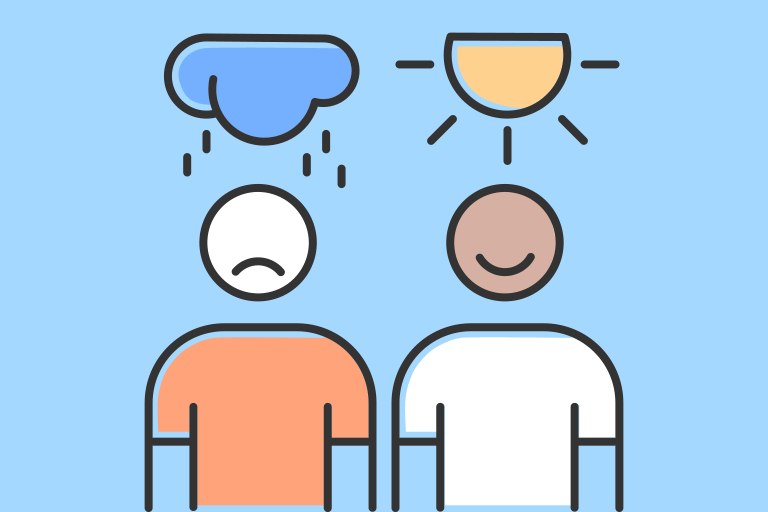The SAD Part of Holidays
How winter/holidays can negatively affect people
By: Ugo Nascimento
Staff Writer
When seasons change, as drastically as they do in New England, many individuals are subjected to a dark and gloomy period of their lives in such intensity that they might suffer with depression.
SAD, ironically short for seasonal affective disorder, is described by the American Psychological Association on the article Seasonal affective disorder: More than the winter blues as “A type of depression that lasts for a season, typically the winter months, and goes away during the rest of the year.”
“ We mainly get vitamin D from the sunlight” States Angela Curtis, the Triton Regional School’s psychologist “ Research has proven that vitamin D helps to support mood, and during winter we get sunlight deprived quite often.”
For some students the bridge between fall and winter can be a hard one to cross. From financial trouble to family issues, teenagers especially can have a hard time during this time of the year. Among many reasons students can feel depressed during the holidays might be; the first holiday without a loved one, gift giving and receiving, family reunions or personal emotional issues . All these factors can contribute to an increase in overwhelming feelings.
The way the brain processes light also affects a person’s behavior,the informative video by The Royalty Institution titled Why Winter Makes You SAD: Seasonal Affective Disorder Explained states that around this time of the year two brain chemicals are mostly influenced, serotonin and melatonin. Serotonin is responsible for mood stabilization , and melatonin helps regulate sleep. How that makes an individual depressed during winter is simple: during winter when the days are shorter, the cycle of wake up and fall asleep times are disrupted. Since the body has to adjust to a later sunrise and an earlier sunset, the internal body clock can have a hard time adjusting, leading to sleep deprivation. Lack of sleep or extensive sleep can cause many problems such as hard time focusing, mood swings, trouble with mood management and ultimately depression.
Some of the most common symptoms of seasonal depression according to the National Institute of Mental Health’s article Seasonal Affective Disorder are as follows: feeling listless, sad or down most of the day, nearly every day; losing interest in activities you once enjoyed; having low energy and feeling sluggish; having problems with sleeping too much;experiencing carbohydrate cravings; overeating and experiencing weight gain; having difficulty concentrating; feeling hopeless, worthless, or guilty; and having thoughts of not wanting to live.
According to Curtis, the Triton psychologist, good ways to help with SAD include getting adequate sleep, including a healthy diet and not only relying on processed food, making an effort to exercise, and getting outside for at least 15 minutes a day. Also giving back to the community in any way you find yourself comfortable with has shown to give individuals a sense of purpose.
Physical Education teacher Jim Hounam also shares tips on how to exercise during these cold months, “ Shoveling snow is a great way to get your cardio up ! Yoga and meditation helps with flexibility not only for the body, but also for the mind,” said Hounam “ And most important take walks outside as much as possible, it can be the littlest thing like walking down the driveway to get the mail, it may look silly but it makes a difference.”
It’s important to mention that help is available at school. The guidance department door is always wide open for all students during the year. Talk to friends and people you are close with about your feelings, also be that friend for other people as well.
Don’t be afraid to seek out help if you need it, your life and mental health matters.
Suicide Prevention Hotline Number – 988

To whoever reads this, my name is Ugo Nascimento and this is my last year at Triton High School.
I usually don’t do anything in school, I just joined...







